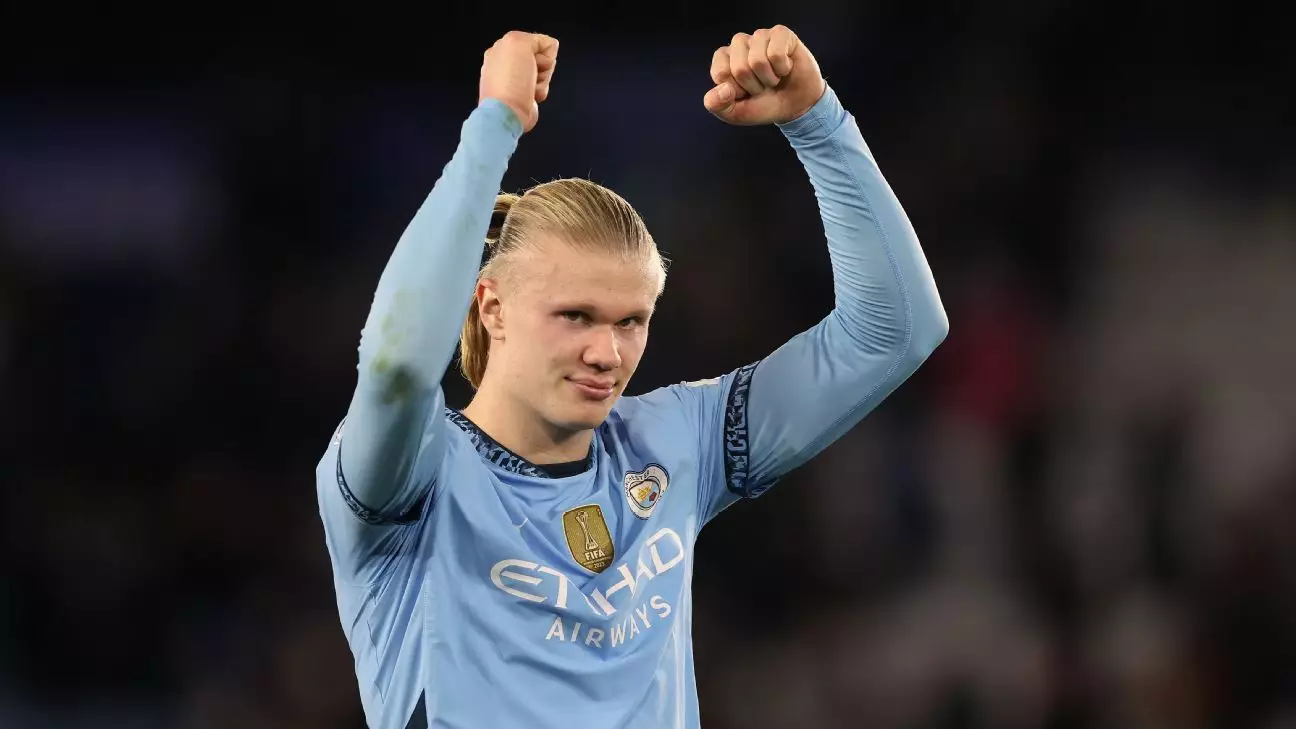In the world of football, players often find themselves at the crossroads of personal aspirations and the overwhelming pressures of external circumstances, especially those pertaining to their clubs. Recently, Erling Haaland, Manchester City’s sensational striker, made headlines by signing a staggering nine-and-a-half year contract with the club amid serious legal challenges looming over Manchester City. Looking beyond the numbers and contracts, Haaland’s decision raises questions about loyalty, trust, and the resilience of football clubs under scrutiny.
The length of Haaland’s contract represents both an unusual choice and a significant commitment in modern football. This monumental contract extends until he is 34 years old, suggesting that the Norwegian player sees a long-term future at Manchester City. In light of the 115 Premier League charges against the club for financial breaches, one would expect hesitation from a player in his position. However, Haaland affirmed that these legal battles did not sway his decision. Instead, he expressed confidence in the club’s management and direction. This conviction stands as a remarkable testimony within a game often characterized by rapid player movements and short contracts designed for flexibility.
When asked about the ongoing charges, Haaland stated his disinterest, emphasizing, “I haven’t thought of that or anything… I’m confident that the club knows what they’re doing.” Such confidence from a player of his caliber suggests that he believes in Manchester City’s infrastructure and its ability to navigate through difficult circumstances. It also signals to fans and stakeholders alike that the organization is viewed as stable and trustworthy, at least from the player’s perspective.
Haaland’s decision to commit to Manchester City seemingly rules out a move to some of Europe’s prestigious leagues, particularly in Spain and Italy, where his father previously speculated he would eventually play. The forward suggested a shift beyond mere play and opportunity, noting his deep connection with the club. “I think when I signed for City I felt like it was home,” he mentioned. This statement reflects a growing trend in football where players increasingly prioritize emotional connections over traditional aspirations of playing for historic clubs synonymous with European glory, like Real Madrid or AC Milan.
The current landscape of football contracts increasingly sees elite players chasing fame and recognition rather than settling into a club culture where they may cultivate long-term success. In this respect, Haaland’s nine-and-a-half year commitment stands as an antithesis to the short-termism that has pervaded player decisions in recent decades. It portrays a fundamental evolution of attitude among young athletes who equate happiness and secure environments with career satisfaction.
Haaland also emphasizes the need for physical well-being in contributing to his performance on the field. He mentioned his new sleeping routine and lifestyle changes, including sleep measurement and dietary adjustments, to optimize his fitness. “I try to do everything I can to be available for the club, the team,” he stated, indicating a mature approach to managing both body and mind amid the rigors of elite sports.
This reflects a growing awareness of the importance of personal health in professional fields, with elite athletes investing time and resources into bettering their physical, mental, and emotional states. Haaland’s commitment to nurturing these aspects as part of his professional regime may inspire fellow players to adopt similar approaches, fostering an environment that prioritizes athlete well-being.
Haaland’s perspectives embody a mix of optimism and determination. At a time when Manchester City is navigating turbulent waters, his steadfast commitment shines brilliantly as both a personal choice and a PR boon for the organization. In expressing his happiness and excitement for future seasons, Haaland embodies the spirit of resilience and unity that sports fans yearn for during periods of adversity.
As Erling Haaland prepares for pivotal matches, notably the upcoming Champions League clash against Paris Saint-Germain, his statements resonate beyond football. They illustrate a refreshing narrative about player loyalty, personal health, and the bond shared between an athlete and their club. The young forward’s message serves as an empowering thought for those grappling with uncertainty: sometimes, choosing commitment and trust can be the most courageous path forward.

